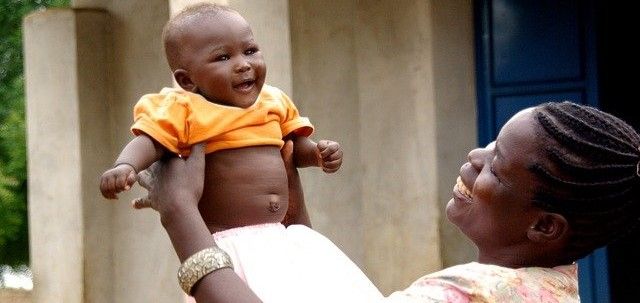In May as we recognized Maternal Mental Health Month; it was also important to acknowledge the reality of racism and its impact on Maternal Mental Health. Regardless of education level and socioeconomic status, Black women in America have more than a three times higher risk of death related to pregnancy and childbirth than their white peers. This fact is alarming and should compel all of us to reflect on ways we can educate and advocate for ourselves and others.
First Chance for Children recently hosted the online event “Racism and its Impact on Maternal Mental Health.” Representatives from area agencies attended the discussion, which focused on how we can address, support and strengthen the wellbeing of mothers and babies against the impact of racism. Jessica Goins, Family Resource Specialist for FC4C, and local doula, Jasmine Keith shared both their personal experiences as Black mothers, as well as their professional perspectives on how to support women during what should be a glorious pregnancy, birth, and motherhood experience.
Top takeaways from the discussion included:
- Racism is a life-and-death issue, particularly for Black mothers and babies.
- A mother is her own body’s best advocate.
- Believe women. Hear them the first time.
- All women should have the right to a glorious pregnancy, birth, and motherhood experience.
- Let mothers know: ‘I’m here, I’m listening, and I care.’
- Support women in creating their circles of support, whether this includes partners, friends, doulas, home visitors, and/or hospital advocates, and support women in making their preferences known, valued, and respected.
Additional resources shared include a 4-step approach for Black women, suggested in the New York Times article “Protecting Your Birth: A Guide for Black Mothers.” The following steps, taken from the article, include suggestions for what a woman might say to her doctor:
Step 1: Acknowledge Race and Racism in the Room
- A woman might say, “I read that black women like me have a much higher chance of death related to pregnancy and childbirth than white women. That’s really scary. What do you think about these statistics and how can we work together to prevent that from happening?”
Step 2: Create a Care Plan Anticipating That Racism May Impact Pregnancy
- Consider and create a circle of support (partner, friend, doula, etc.) to bring a sense of community to the experience, and make preferences known.
- Blood pressure should be monitored before, during and after pregnancy. A woman might say, “I know Black women like me are more likely to have problems related to blood pressure. How are we going to monitor my blood pressure symptoms so I am safe?”
Step 3: Identify How Racism May Impact Labor
- Enroll in a birthing class in order to learn about the basics of labor and delivery and what pain options are available. Many studies demonstrate that medical professionals have perceived black people as having a higher tolerance for pain. A woman might say, “I know that research has shown that Black women are more likely to have their pain under-treated. I am worried about being in pain and not receiving appropriate treatment. How can we make sure that doesn’t happen?”
- Talk to your doctor about cesarean birth: “I am concerned about data showing that Black women like me have higher rates of cesarean delivery. What is your cesarean delivery rate, and why would you advise me to have one?”
- Create a birth preferences document and share your preferences with your support team.
Step 4: Identify How Racism May Impact Postpartum
- Create a “Postpartum Preferences Plan,” and share your preferences with circles of support, and plan for regular check-ins with a care provider.
- A woman might say, “I know that many of the scary things that happen in pregnancy, can happen after delivery. I want to be as prepared as possible for postpartum recovery. Can we make a plan to keep me safe and healthy during my postpartum care?”
First Chance for Children is committed to acknowledging the ‘Racism in the Room,’ and supporting women in the sacred experience of pregnancy, childbirth and parenting. Stay tuned for more opportunities to share resources and important discussions in our pursuit to do our part for children and families!
Click on the link here for references, articles, and additional advocacy tools, including the “Black Birthing Bill of Rights,” and the “Anti-Racist Prenatal & Postnatal Care Preferences” document.

